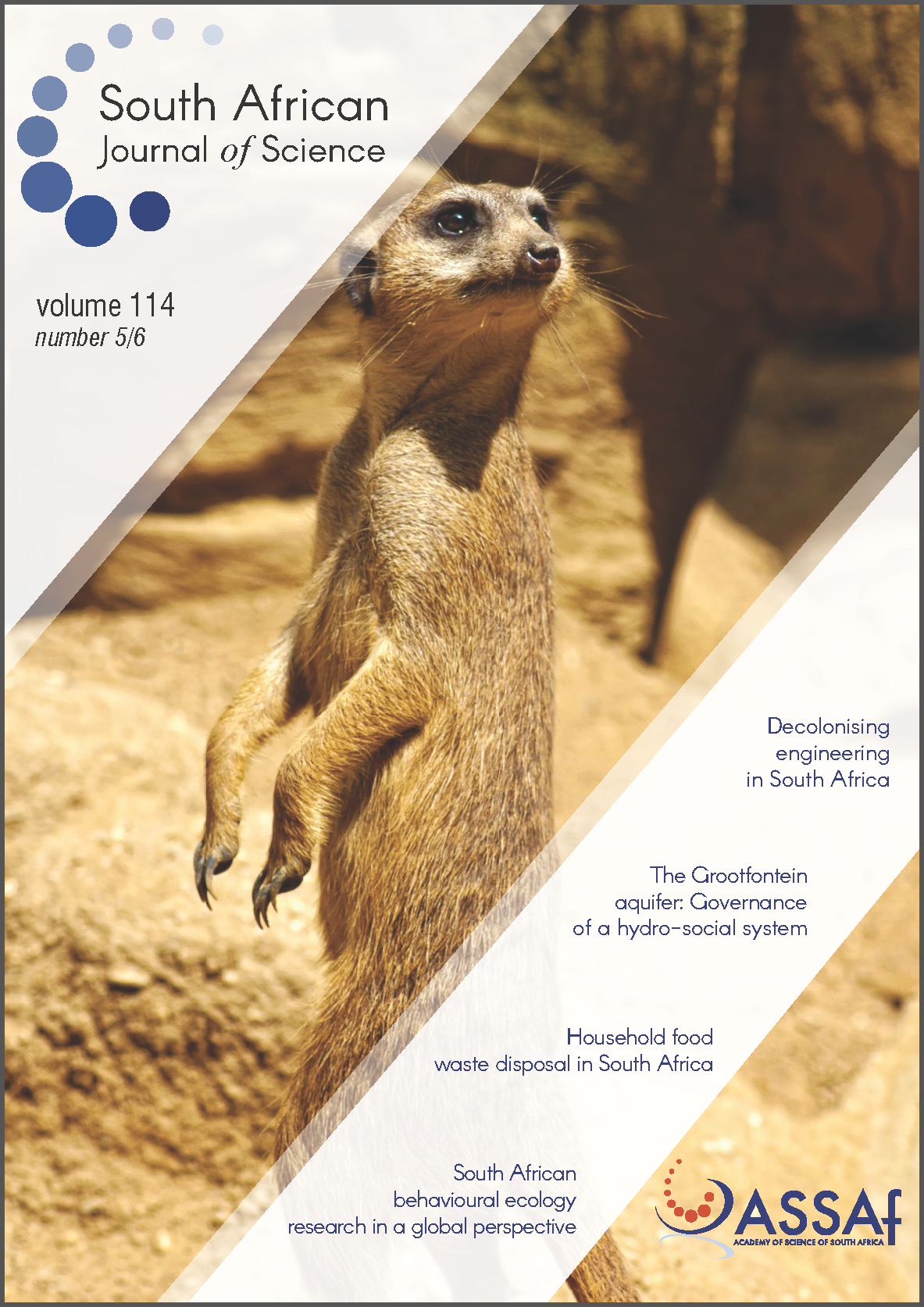Trends in behavioural ecology: Putting South African research in a global perspective
DOI:
https://doi.org/10.17159/sajs.2018/20170321Keywords:
animal behaviour, bibliometrics, Mammalia, research impact, ecologyAbstract
South Africa remains at the leading edge of scientific publishing on the African continent, yet few analyses of publication patterns exist outside the biomedical field. Considering the large number of protected areas and mammalian guilds within the country, I examined trends in South African ecological research as it pertains to the behaviour of mammals. I assessed the topics and taxonomic focus of mammalogists at South African institutes over the span of 15 years (2001–2015), and contrasted local research with the shifting focus of international behavioural research. This review of more than 1000 publications indicates that South African based researchers exhibit a strong tendency towards field-based research, as opposed to laboratory-centred experiments. In terms of topical focus, local ecologists place significant weight on the behavioural categories of mating, social and foraging behaviour – reflecting a global priority for these topics. This finding contrasts with an increased emphasis on animal cognition and communication research in the international research arena, including field-based studies on these themes. I make suggestions on how behavioural ecologists in South Africa can align themselves with global trends while also continuing to distinguish those facets that make South African behavioural ecology unique.
Significance:
- This review is the first of behavioural ecology in South Africa.
- Suggestions are made for where South African researchers can profitably shift research focus.
- International trends in behavioural ecology are highlighted.
Published
Issue
Section
License

This work is licensed under a Creative Commons Attribution 4.0 International License.

All articles are published under a Creative Commons Attribution 4.0 International Licence
Copyright is retained by the authors. Readers are welcome to reproduce, share and adapt the content without permission provided the source is attributed.
Disclaimer: The publisher and editors accept no responsibility for statements made by the authors
How to Cite
- Abstract 967
- PDF 885
- EPUB 258
- XML 315













.png)